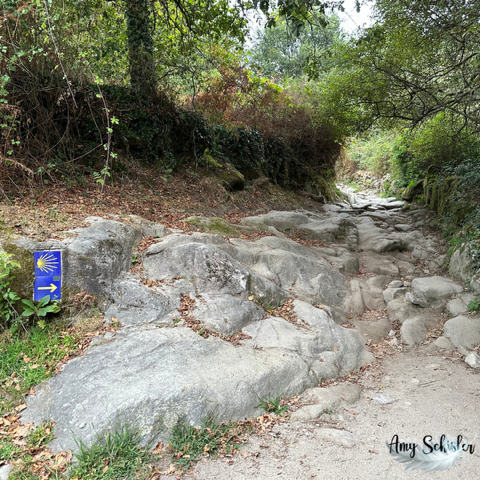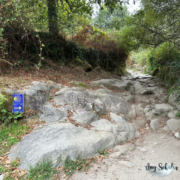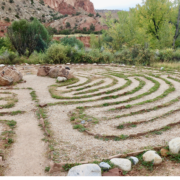The Meaning of Life – Part 3 of 3, Being Fully Alive, Happily Ever After
I will seize the occasions that present themselves every day; I will accomplish ordinary actions in an extraordinary way. (Cardinal Francis Xavier Nguyên Van Thuân, Five Loaves and Two Fish)
Life is a journey on which we grow, learn, discover, and become. We begin that journey with many questions. Who am I? What is my purpose? What should I do? Where should I go? Where will I end up? The questions are large, small, simple, and complex; and often, the answers we discover lead to more questions. We long for answers with tidy endings, but life is not a book with a happily ever after!
Or is it?
Discovering the Meaning of Life
Think about how many self-help books there are out there. How many articles and podcasts and Ted Talks are there about finding yourself, knowing your purpose, or discovering the meaning of life? We are surrounded by authors, psychologists, doctors, talk show hosts, podcasters, TikTokers, journalists, and more who purport to know what we’re seeking and where we can find it. They all claim to have the answers!

I’d like to propose that many of those books should be tossed out, articles ripped from the seams of the magazines, and recordings silenced! We all have inside of us what we need to discover the meanings of our lives and the directions in which we should be heading. All we need is to have faith, lead with mercy and compassion, and love one another. Through faith and prayer, we can discover how to follow our paths and live life abundantly, the way God intended us to.
We need to open our eyes to the gifts and talents God has given us and learn to use them, and use them well. We need to look deep inside ourselves and find what we are good at, what we are passionate about, and pray about what we are to do with that knowledge, those skills. We need to keep asking questions and keep looking for God to answer them.
We must seize upon the words of Cardinal Francis Xavier Nguyên Van Thuân: “I will seize the occasions that present themselves every day; I will accomplish ordinary actions in an extraordinary way.”
I will admit, this isn’t easy. It’s taken all my life—over fifty years—to find my path and discover answers to my questions. And I’m not alone. We live in a world in which we are surrounded by so much noise, we can’t hear God calling our names and don’t know which way to turn to find the right answers and the right path.
Finding Our Calling
The truth is, we can’t live our lives abundantly until we discover our callings, and we all have a calling. We all have a path that has been laid out for us. It has always been there, waiting for us to find it, to ask the right questions. It’s up to us to discover the path and up to us to choose to follow it. God will not force us to do anything we don’t want to, but He will lay the path and give us clue after clue, prompting upon prompting, and sign after sign. We can look for and acknowledge them, or pretend they don’t exist. There is always an answer to our question. We may not like the answer, or we may not be prepared to accept it, but it’s always there. Psalm 16 tells us, “You make known to me the path of life; you will fill me with joy in your presence, with eternal pleasures at your right hand” (Psalm 16:11).
Don’t get me wrong. Even when you find the path, you will still have questions and will continue to search for meaning. However, the longer you follow your path, the more answers you will receive. It won’t always be easy. Sometimes the path will be clear and obvious, paved and lighted. Other times, the path will disappear around a bend into the darkness, and we must find our way to the light. Those are the times the answers aren’t readily apparent. Those are also the times when staying on the path is the most rewarding. Those are the aha moments we have when we look back and see the answers so clearly, we can’t figure out how we missed them along the way. Pope Francis said, “If we wish to follow Christ closely, we cannot choose an easy, quiet life. It will be a demanding life, but full of joy” (The Spirit of St. Francis: Inspiring Words from Pope Francis, p.87).
Called by Name
So many throughout the Bible were called, some by name. God called out to Abraham, Jacob, and Moses, using their names twice to get their attention (Genesis 22:11-13; 46;1-4; Exodus 3:1-10), and I wonder how many times He has to call my name because I’m too busy to pay attention. I think of Samuel in 1 Samuel 3:4 who was called by God but didn’t recognize that it was the Lord calling him.
How often do we hear the call but don’t realize it’s the voice of God?
I lovingly recall Mary Magdalene weeping at the tomb, asking the “gardener” where Jesus’s body was. It was only when the man addressed her by name that she recognized it was the Lord (John 20:11-16). How often have I stood and looked at something without understanding that it was God trying to get me to see Him?

At some point, each of us is called by name, and at that point, we will know that we are fully alive, ready to answer God’s call. If we listen and turn toward the voice with an openness and readiness, we will see our paths illuminated before us, littered with the answers to our questions. Yes, there will be twists and turns and many crossroads as we continue to question the way, but the path is there, and so are the answers. All we need to do is be willing to follow the path wherever it leads us, and open ourselves up to living life in abundance. And that is how we will find our happily ever after.
To wrap up this series, let us reflect on these words of St. John of God:
If we look forward to receiving God’s mercy, we can never fail to do good so long as we have the strength. For if we share with the poor, out of love for God, whatever he has given to us, we shall receive according to his promise a hundredfold in eternal happiness. What a fine profit, what a blessed reward! With outstretched arms he begs us to turn toward him, to weep for our sins, and to become the servants of love, first for ourselves, then for our neighbors. Just as water extinguishes a fire, so love wipes away sin. (Cartas y Escritos 18)
Copyright 2025 Amy Schisler
Images copyright 2025 Amy Schisler, all rights reserved.






 She opens with brief paragraphs that generally describe each of the four. Then she jumps right into the saints and why she thinks a specific saint owns that particular temperament. This method of organization speaks to the point of the title, but at times, particularly in the chapters on St. Francis de Sales and St. Peter, while enjoyable, can be confusing and repetitive. In both, she moves on to address other saints of the same temperament, perhaps to give additional examples of the trait, but sometimes it sounds as though she is trying to force the saint to fit the trait. St. Francis de Sales is described as “Melancholic-Choleric” in the chapter title and she spends the first few pages talking about the Choleric disposition. She notes, however, that, upon studying his life and words, Choleric is the least of his traits. To her point, she impresses upon the reader that, ideally, we want to become a balance of the best of all four traits, which St. Francis de Sales achieved through a great deal of prayer, intention, and work.
She opens with brief paragraphs that generally describe each of the four. Then she jumps right into the saints and why she thinks a specific saint owns that particular temperament. This method of organization speaks to the point of the title, but at times, particularly in the chapters on St. Francis de Sales and St. Peter, while enjoyable, can be confusing and repetitive. In both, she moves on to address other saints of the same temperament, perhaps to give additional examples of the trait, but sometimes it sounds as though she is trying to force the saint to fit the trait. St. Francis de Sales is described as “Melancholic-Choleric” in the chapter title and she spends the first few pages talking about the Choleric disposition. She notes, however, that, upon studying his life and words, Choleric is the least of his traits. To her point, she impresses upon the reader that, ideally, we want to become a balance of the best of all four traits, which St. Francis de Sales achieved through a great deal of prayer, intention, and work.

 A mountain-top experience.
A mountain-top experience.


